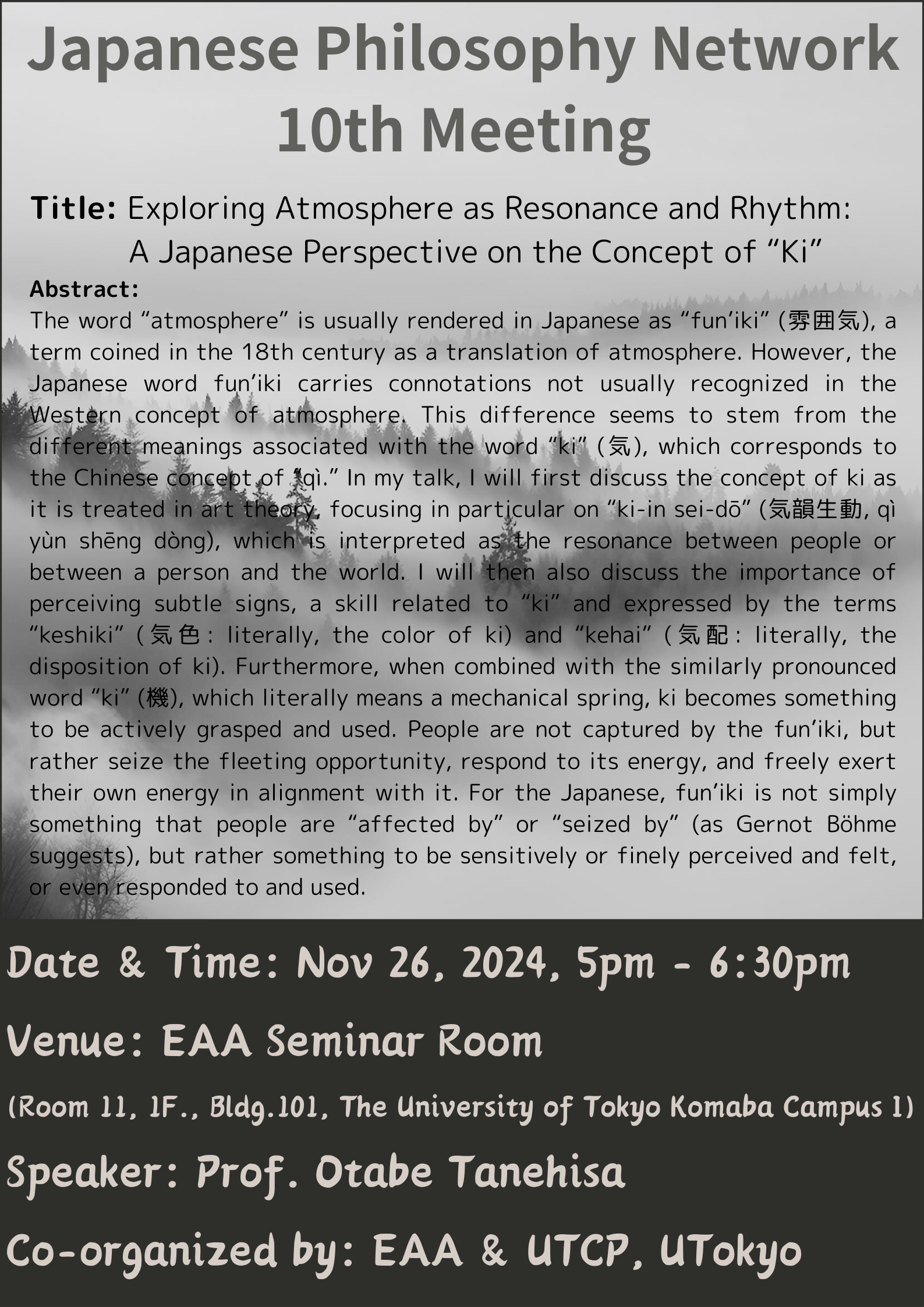
|
Title: | Japanese Philosophy Network 第10回研究会 |
||
|---|---|---|---|---|
| Date: | 2024年11月26日火曜日 17:00-18:30 |
Place: | 東京大学駒場キャンパスI 101号館11号室(EAAセミナー室) |
|
Japanese Philosophy Network 第10回研究会
Japanese Philosophy Network第10回研究会を開催します。今回は、東京大学大学院文学部名誉教授の小田部胤久先生による共鳴とリズムとしての雰囲気を日本語の「気」概念から見つめ直す講演会があります。詳細は下記のとおりです。
日時:2024年11月26日(火)17:00 〜 18:30
場所:東京大学駒場キャンパスI 101号館11号室(EAAセミナー室)
言語:英語
主催:東京大学東アジア藝文書院(EAA)、東京大学共生のための国際哲学研究センター(UTCP)
発表者 小田部胤久(東京大学名誉教授)
発表題目 Exploring Atmosphere as Resonance and Rhythm: A Japanese Perspective on the Concept of “Ki”
発表要旨 The word “atmosphere” is usually rendered in Japanese as “fun’iki” (雰囲気), a term coined in the 18th century as a translation of atmosphere. However, the Japanese word fun’iki carries connotations not usually recognized in the Western concept of atmosphere. This difference seems to stem from the different meanings associated with the word “ki” (気), which corresponds to the Chinese concept of “qì.” In my talk, I will first discuss the concept of ki as it is treated in art theory, focusing in particular on “ki-in sei-dō” (気韻生動, qì yùn shēng dòng), which is interpreted as the resonance between people or between a person and the world. I will then also discuss the importance of perceiving subtle signs, a skill related to “ki” and expressed by the terms “keshiki” (気色: literally, the color of ki) and “kehai” (気配: literally, the disposition of ki). Furthermore, when combined with the similarly pronounced word “ki” (機), which literally means a mechanical spring, ki becomes something to be actively grasped and used. People are not captured by the fun’iki, but rather seize the fleeting opportunity, respond to its energy, and freely exert their own energy in alignment with it. For the Japanese, fun’iki is not simply something that people are “affected by” or “seized by” (as Gernot Böhme suggests), but rather something to be sensitively or finely perceived and felt, or even responded to and used.







